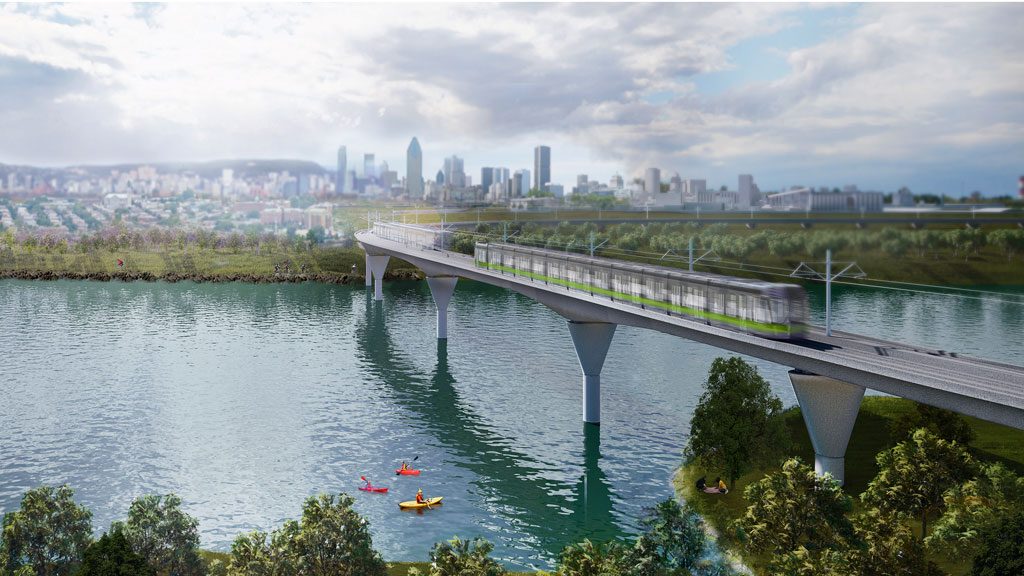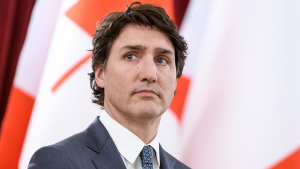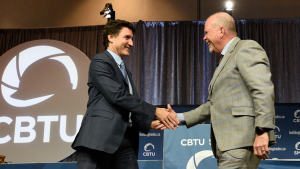Prime Minister Justin Trudeau has urged his new Minister of Infrastructure and Communities Francois-Philippe Champagne to revise how infrastructure spending is accounted for, an apparent reaction to criticism that the federal government is seen to have been rolling out budgeted infrastructure too slowly.
In a mandate letter to Champagne that was posted Aug. 28, Trudeau said he expects Champagne, appointed July 18 to replace Amarjeet Sohi, to work with the Treasury Board to “ensure that we account for and flow infrastructure investment as construction work takes place.
“Appropriations for infrastructure each year are the government’s and Parliament’s expectation for investment flow. Funding should not lapse, and it should only be re-profiled to ensure funding committed to projects continues to be available until completion.”
The requirement was one of several that caught the attention of Residential and Civil Construction Alliance of Ontario (RCCAO) executive director Andy Manahan.
A recent report from the RCCAO had criticized the pace of federal infrastructure spending and Manahan reiterated that point and also critiqued federal policy on the Canada Infrastructure Bank (CIB) and federal bridge procurement in a recent interview.
“There are lots of good things in there,” said Manahan about the mandate letter. “From a high level, on evidence-based infrastructure planning, absolutely, that has to continue, and their initiative to do more data mining, those are worthy initiatives and will be good in the long run. But I think there is too much political intervention in the way the infrastructure programs have been released so far.”
The RCCAO report said “discrepancies between estimated and realized funding may be in part due to the reimbursement process of the government, whereby spending is distributed upon submission of receipts, which may result in a lag. The discrepancy in planned and actual funding has resulted in a shift in the disbursement of funding.”
Manahan commented, “What we are seeing in the mandate letter is an acknowledgement of that problem and a suggestion that although monies may not have been spent yet, the fact that they are dedicated to a project, the government is saying, we aren’t taking credit and it is making it look like are we doing things too slowly so let’s change the accounting.
“I suppose that is one way to do it.”
As for the CIB, the mandate letter asked Champagne to “ensure the Bank has the support it needs for its core purpose — attracting private sector and institutional investment to expand the scope of public infrastructure investment in Canada.”
Manahan argued the first investment announced by the CIB on Aug. 22 failed to further that purpose, in that the $1.28 billion that was allotted to the Montreal REM transit project merely replaced existing funds already pledged by the government.
“It’s essentially a repackaged loan because the federal government had already committed to providing a loan for this project,” said Manahan.
“They did say in their release this would free up additional money for other projects but really this is getting far away from the mandate that we thought was going to be there for the infrastructure bank.”
The REM is considered a low-priority transit project in some circles, Manahan said.
Trudeau’s letter to Champagne also mandated the minister to “continue progress on priority bridges,” including the “toll-free replacement of the Champlain Bridge” and the Gordie Howe International Bridge.
Manahan criticized the discrepant tolling models on the two projects — no tolls on the Quebec project, a policy announced just before the 2015 federal election, and tolls to help pay for the Ontario project.
“I think that was done for electoral reasons,” said Manahan of the Champlain bridge decision. “That has set a tone that is difficult to unwind. Although it is replacing a bridge, it is a new piece of infrastructure and it should have been paid for using tolls.”
The mandate letter also urged Champagne to conclude outstanding negotiations with provinces that have not signed bilateral infrastructure agreements — the two remaining are Saskatchewan and Newfoundland and Labrador; to use an “environmentally friendly lens” and incorporate community employment benefits into funding arrangements; and to work with the Minister of Finance for the launch of a new Canadian Green Bond that can enable additional investments when a lack of capital represents a barrier to green projects.
Further to the requirements for dealing with unspent funds, the letter indicated, “If no investments are identified for use from allocated infrastructure funds, work with the Minister of Finance to ensure those funds are automatically transferred to municipalities through a temporary top-up of the Gas Tax Fund.”











Recent Comments
comments for this post are closed